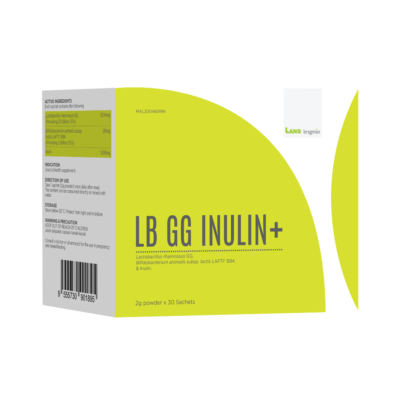H. pylori, is a primary cause of gastritis and peptic ulcer disease worldwide based on CDC Yellow Book 2024 [1]. While conventional treatments often involve antibiotics, there are natural approaches that can support prevention and recovery.
Dietary Adjustment and Natural Remedies
- Limit Processed Foods: Opt for whole, unprocessed foods like fruits, vegetables, lean proteins, and whole grains. These foods are rich in nutrients and fiber, which can help support a healthy gut microbiome and reduce inflammation.
- Avoid Irritants: Steer clear of foods and beverages that can irritate the stomach lining, such as alcohol, caffeine, and spicy foods. These substances can exacerbate symptoms of H. pylori infection and contribute to stomach ulcers.
- Ginger: Ginger has been shown to have anti-inflammatory and antimicrobial properties that may help combat H. pylori [2]. It can be consumed in various forms, such as ginger tea, ginger root, or ginger supplements.
- Licorice: Licorice root has been used traditionally to treat stomach ulcers and may have a protective effect against H. pylori. It works by sticking to cell walls and promoting ulcer healing [3]. However, it’s important to consult with a healthcare professional before using licorice, as excessive consumption can have side effects.
Incorporate Probiotic Supplements into Daily Regimen
Probiotics, especially Lactobacillus, are proven clinically to prevent and tackle H. pylori infection in the stomach as they grow in acidic conditions at pH 4–6:
- Lactobacillus reuteri [4,5].
- Lactobacillus acidophilus [6].
- Lactobacillus rhamnosus [7]
Other than Lactobacillus species, Bifidobacterium spp., and Saccharomyces spp. are also commonly studied as adjunctive treatment of H. pylori eradication and in mitigating side effects. To read further: Clinically proven probiotic strains that have promising effect in restoring gut microbiome while acting as an adjunct therapy for H.Pylori infections:
Stress Management
Practice Relaxation Techniques: Stress can significantly contribute to stomach problems by increasing acid production and disrupting the gut microbiome. Incorporate relaxation techniques like meditation, deep breathing, or yoga into your daily routine to help manage stress.
- Meditation: Find a quiet space and focus on your breath, allowing your mind to calm and relax.
- Deep Breathing: Practice deep, slow breaths, inhaling through your nose and exhaling through your mouth.
- Yoga: Engage in gentle yoga poses to stretch your body and reduce tension.
Prioritize Sleep: Adequate sleep is essential for overall health and can help regulate stress hormones. Aim for 7-9 hours of quality sleep each night. Create a relaxing bedtime routine, such as taking a warm bath or reading a book.
Lifestyle Changes
- Quit Smoking: Smoking is a significant risk factor for H. pylori infection and can worsen its effects. It can damage the stomach lining and increase the risk of developing stomach ulcers. If you smoke, consider using nicotine replacement therapy or seeking professional help to quit.
- Maintain a Healthy Weight: Obesity can increase the risk of stomach issues, including H. pylori-related conditions. Aim to maintain a healthy weight through a balanced diet and regular exercise. Engage in activities you enjoy, such as walking, swimming, or dancing.
- Limit Alcohol Consumption: Excessive alcohol consumption can irritate the stomach lining and contribute to H. pylori infection. If you drink alcohol, do so in moderation.
While these natural approaches can be helpful, it’s crucial to consult with a healthcare provider before making significant changes to your diet or lifestyle, especially if you have an existing health condition.
Disclaimer: This article is for informational purposes only and does not replace professional medical advice.
References
- Connor.B, 2023. Helicobacter pylori. CDC Yellow Book 2024. https://wwwnc.cdc.gov/travel/yellowbook/2024/infections-diseases/helicobacter-pylori
- Ebrahimzadeh Attari, V., Somi, M. H., Asghari Jafarabadi, M., Ostadrahimi, A., Moaddab, S. Y., & Lotfi, N. (2019). The Gastro-protective Effect of Ginger (Zingiber officinale Roscoe) in Helicobacter pylori Positive Functional Dyspepsia. Advanced pharmaceutical bulletin, 9(2), 321–324. https://doi.org/10.15171/apb.2019.038
- A. McDermott and C.Whelan (2024). What Natural Treatments Work for H. pylori? Healthline Media https://www.healthline.com/health/digestive-health/h-pylori-natural-treatment#licorice-root
- Mehling H, Busjahn A.(2013). Non-viable Lactobacillus reuteri DSMZ 17648 (Pylopass™) as a new approach to Helicobacter pylori control in humans. Nutrients;5(8):3062-73. doi: 10.3390/nu5083062.
- Holz, C., Busjahn, A., Mehling, H., Arya, S., Boettner, M., Habibi, H., & Lang, C. (2015). Significant Reduction in Helicobacter pylori Load in Humans with Non-viable Lactobacillus reuteri DSM17648: A Pilot Study. Probiotics and antimicrobial proteins, 7(2), 91–100. https://doi.org/10.1007/s12602-014-9181-3
- Shen S, Ren F, Qin H, Bukhari I, Yang J, Gao D, Ouwehand AC, Lehtinen MJ, Zheng P, Mi Y.(2023). Lactobacillus acidophilus NCFM and Lactiplantibacillus plantarum Lp-115 inhibit Helicobacter pylori colonization and gastric inflammation in a murine model. Front Cell Infect Microbiol.;13:1196084. doi: 10.3389/fcimb.2023.1196084. PMID: 37621875; PMCID: PMC10445763.
- Ami Patel, Nihir Shah, J.B. Prajapati (2014). Clinical application of probiotics in the treatment of Helicobacter pylori infection—A brief review, Journal of Microbiology, Immunology and Infection, Volume 47, Issue 5, Pages 429-437, 1684-1182, https://doi.org/10.1016/j.jmii.2013.03.010.









